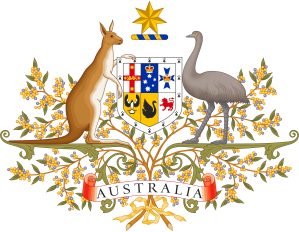 CLARIN – or the Common Language Resources and Technology Infrastructure – is a digital infrastructure which provides access to a broad range of language data and tools to support research in the humanities and social sciences, and beyond. CLARIN provides access to multimodal digital language data (text, audio, video) and advanced tools with which to explore, analyse or combine these datasets.
CLARIN – or the Common Language Resources and Technology Infrastructure – is a digital infrastructure which provides access to a broad range of language data and tools to support research in the humanities and social sciences, and beyond. CLARIN provides access to multimodal digital language data (text, audio, video) and advanced tools with which to explore, analyse or combine these datasets.
Within CLARIN are legal corpora which contain legislation, legal acts, transcriptions of court decisions, and other kinds of materials related to national or supernational law. There is also a parliamentary corpora resource family.
Many languages can be found in the infrastructure: Bosnian, Bulgarian, Catalan, Croatian, Czech, Danish, Dutch, English, Estonian, Finnish, French, Galician, German, Hungarian, Icelandic, Italian, Latvian, Lithuanian, Modern Greek (1453-), Norwegian, Polish, Portuguese, Russian, Serbian, Slovenian, Spanish, Swedish, Turkish, Ukrainian… (I probably forgot some!). Continue reading
 The European Union Agency for Criminal Justice Cooperation (Eurojust) is a hub based in The Hague, the Netherlands, where national judicial authorities work closely together to fight serious organised cross-border crime. In January it published a report on transfer of proceedings in the EU which may well be useful to readers of this blog.
The European Union Agency for Criminal Justice Cooperation (Eurojust) is a hub based in The Hague, the Netherlands, where national judicial authorities work closely together to fight serious organised cross-border crime. In January it published a report on transfer of proceedings in the EU which may well be useful to readers of this blog. Carrying on the theme from yesterday, another gem from the European Commission’s Translation people – no less than 24 clear writing tips, relating to the different languages.
Carrying on the theme from yesterday, another gem from the European Commission’s Translation people – no less than 24 clear writing tips, relating to the different languages. The freely downloadable publication ‘A history of translation at the European Commission‘ describes eight decades of fundamental work.
The freely downloadable publication ‘A history of translation at the European Commission‘ describes eight decades of fundamental work. The World Trade Organization makes available a glossary called ‘WTOTERM’, in English, French and Spanish. Some entries include explanatory notes and/or references, as well as term status and/or sources.
The World Trade Organization makes available a glossary called ‘WTOTERM’, in English, French and Spanish. Some entries include explanatory notes and/or references, as well as term status and/or sources. The UN System Staff College (UNSSC) is committed to innovative learning and training programmes focused on public policy.
The UN System Staff College (UNSSC) is committed to innovative learning and training programmes focused on public policy. We have news this week from a good friend of this blog (and speaker at the WordstoDeeds Conference 2017 at Gray’s Inn), Dr Hanem El-Farahaty. She informs us of the publication of her latest paper which discusses the building of diachronic corpora including all available constitutions of 22 Arabic countries.
We have news this week from a good friend of this blog (and speaker at the WordstoDeeds Conference 2017 at Gray’s Inn), Dr Hanem El-Farahaty. She informs us of the publication of her latest paper which discusses the building of diachronic corpora including all available constitutions of 22 Arabic countries.  A new Federal Court Practice Note has just been issued by the Chief Justice, mainly to implement the recent second edition of the Recommended National Standards for Working with Interpreters in Courts and Tribunals published in 2022 by the Judicial Council on Cultural Diversity.
A new Federal Court Practice Note has just been issued by the Chief Justice, mainly to implement the recent second edition of the Recommended National Standards for Working with Interpreters in Courts and Tribunals published in 2022 by the Judicial Council on Cultural Diversity. The other day I came across a helpful and succinct set of definitions ranging across many fields, published by the French Institut national de la statistique et des études économiques (INSEE).
The other day I came across a helpful and succinct set of definitions ranging across many fields, published by the French Institut national de la statistique et des études économiques (INSEE). The estimable Emma Goldsmith, a medical translator with a background in nursing, is conducting an anonymous survey to gain an overview of workstation set-ups, break strategies, and upper-body problems of translators and editors, and to investigate how respondents counteract the negative impact of working long hours at the computer.
The estimable Emma Goldsmith, a medical translator with a background in nursing, is conducting an anonymous survey to gain an overview of workstation set-ups, break strategies, and upper-body problems of translators and editors, and to investigate how respondents counteract the negative impact of working long hours at the computer.
You must be logged in to post a comment.